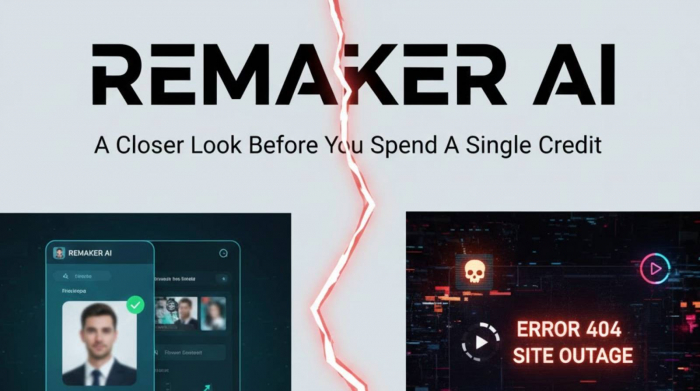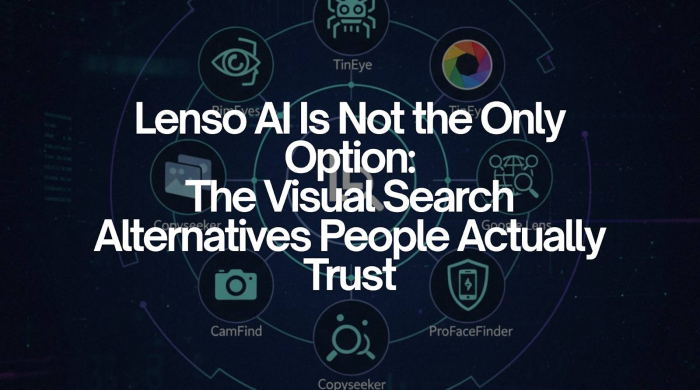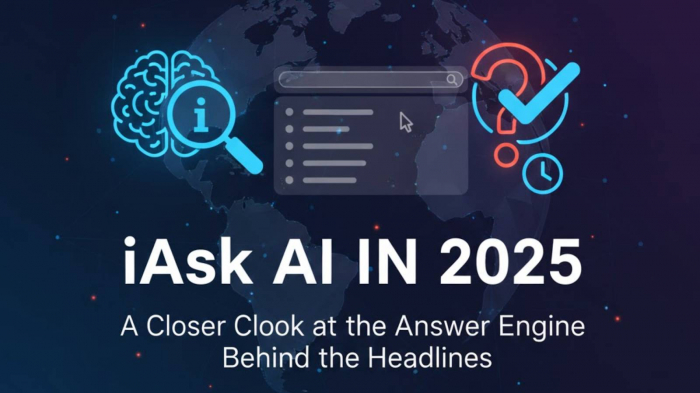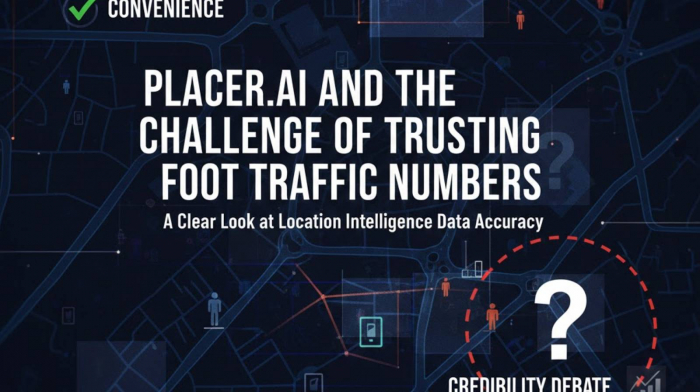Table of Content
- Jobright’s Rise: From Startup to #1 Product Hunt Winner
- How Jobright AI Supposedly Works
- The Efficiency Claim: Does It Really Save Time?
- Pricing Breakdown: Affordable or Overhyped?
- Pros and Cons: A Balanced Perspective
- User Adoption: Numbers Behind the Buzz
- Comparing Jobright to Traditional Job Boards
- Ethical and Privacy Considerations
- Recruiters, AI, and the New Job Market
- User Reviews: What People Are Saying
- Is Jobright Legit and Reliable?
- Verdict: A Useful Tool, But Not a Magic Wand
AI-powered job platforms are everywhere, but few have drawn as much attention as Jobright AI.
Touted as an “AI job search copilot,” it claims to handle everything from resume tailoring to real-time job matching, all while saving users hours of manual effort.
That sounds impressive, but is Jobright actually as effective as it sounds?
Let’s take a closer look at how it works, what users are saying, and whether it’s truly the future of job hunting, or just another smart interface for old problems.
Jobright’s Rise: From Startup to #1 Product Hunt Winner
Launched quietly in 2024, Jobright quickly gained traction, securing Product Hunt’s #1 Product of the Day and reportedly crossing 500,000 active users within a year.
The company positions itself as a blend of automation and guidance, not just a job board but a copilot that suggests, auto-fills, and tracks your job applications in one place.
“Think of it like Grammarly, but for job search,” one Redditor explained on r/GetEmployed.
But speed and AI features alone don’t guarantee success, so what’s actually happening under the hood?
How Jobright AI Supposedly Works
Unlike traditional job boards that rely on keyword searches, Jobright’s algorithm claims to analyze 10+ million job descriptions and match users by skills and intent instead of title keywords.
Key Components
Smart Matching: Jobright says it learns your resume, preferences, and skill set to deliver relevant roles hourly.
- AI Resume Builder: Automatically adapts your resume’s tone and phrasing for each listing, optimized for ATS filters like Workday or Greenhouse.
- Auto-Apply Feature: Autofills 90% of major platforms’ forms to eliminate repetitive data entry.
- Application Tracker: Keeps every stage, from submission to offer, in one unified dashboard.
- Fake Job Filter: Uses AI to detect and remove low-credibility or scam listings.
Official documentation describes these as “human-in-the-loop automations,” meaning you can intervene and edit results at every stage.
That sounds robust, but as with most AI systems, performance varies depending on user input and context.
The Efficiency Claim: Does It Really Save Time?
Jobright’s marketing often cites time savings of “up to 10 hours per week.” While this isn’t independently verified, anecdotal reviews hint at a noticeable difference.
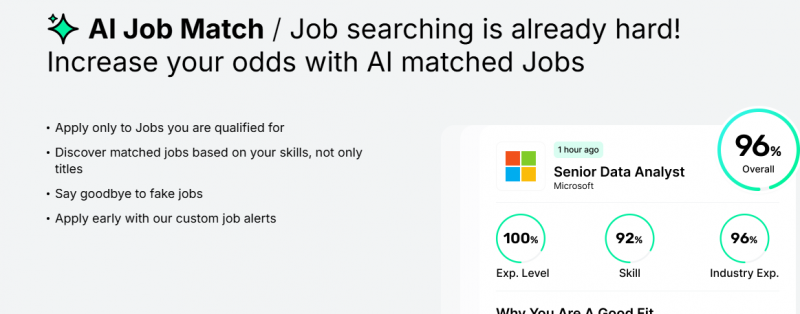
On Trustpilot, Jobright holds a rating above 4.5/5, with users praising its resume automation:
“The AI resume edits actually helped me get callbacks from companies I’d been ignored by before.”
But there are also mixed experiences:
“It’s convenient but occasionally pushes irrelevant roles, the matching isn’t perfect yet.” — User review, Trustpilot
A Reddit user echoed this sentiment, noting:
“It gets you organized, but don’t expect it to know exactly what you want right away. You have to teach it.”
So while efficiency improves over time, Jobright’s learning curve appears similar to early AI writing or coding tools, useful, but not infallible.
Pricing Breakdown: Affordable or Overhyped?
Jobright offers tiered plans, though pricing may vary slightly by region:
| Plan | Approx. Price (USD) | Features |
| Free Plan | $0/month | Basic AI search, limited resume tailoring |
| Pro Plan | $9.99/month | Unlimited matches, advanced filters, resume optimization |
| Career Accelerator | $99/year | Includes coaching, AI resume audits, early feature access |
Compared to career-coaching services or traditional resume consultations that can cost $200+, Jobright’s entry tier appears cost-effective.
However, some Reddit users caution that the free tier feels limited, requiring an upgrade for full automation and insider-networking features.
Pros and Cons: A Balanced Perspective
Pros
- Easy onboarding with modern, intuitive interface
- AI resume generator tailored for recruiter visibility
- Real-time job recommendations with customizable filters
- Verified job sources with built-in scam filtering
- Transparent pricing and mobile access
Cons
- Match quality depends heavily on resume input accuracy
- AI-generated resume phrasing can sound formulaic
- Some industries (e.g., manufacturing, creative arts) underrepresented
- Premium features gated behind paid plans
“It’s not perfect, but it definitely made job hunting less miserable,” wrote one user on Quora.
User Adoption: Numbers Behind the Buzz
By mid-2025, Jobright reported over 500,000 registered users, up from 50,000 the previous year, a tenfold increase.
Around 60% log in daily, according to their internal survey shared in a blog update.
In that same survey:
- 50% claimed more interview invitations.
- 31% said their interview rate “tripled.”
- 82% found the dashboard “significantly reduced application stress.”
Whether those figures are marketing metrics or user-reported data isn’t entirely clear, but they point to a strong engagement trend among active job seekers.
Comparing Jobright to Traditional Job Boards
| Aspect | Jobright AI | Traditional Platforms |
| Resume Editing | AI-based, tailored per role | Manual upload, generic resume |
| Job Discovery | Skill & intent-based AI match | Keyword search & filters |
| Application Process | Auto-fill + tracker | Manual form completion |
| Safety | Scam detection & source validation | Limited verification |
| Human Control | Editable AI outputs | Fully manual |
Essentially, Jobright doesn’t replace your job search; it overlays intelligence on top of it.
Ethical and Privacy Considerations
One frequent concern in AI hiring tools is data privacy.
Jobright’s privacy statement says users retain ownership of their resumes and personal data, with optional opt-ins for networking features.
According to ScamAdviser’s verification, Jobright scores highly on legitimacy and transparency.
It also filters fraudulent listings, a welcome safeguard in an ecosystem where job scams rose 30% globally in 2024
Still, as users noted on Reddit, “You’re still trusting an algorithm with personal career info, that’s not something everyone’s comfortable with yet.”
Recruiters, AI, and the New Job Market
Jobright doesn’t eliminate human recruiters; it supplements them.
Recruiters now use AI tools to prescreen resumes faster, while platforms like Jobright help applicants tailor their materials before submission.
A 2025 SHRM report found that 75% of HR professionals say AI speeds up hiring, but 74% can identify AI-written applications, which means authenticity is becoming the next differentiator.
Jobright’s approach, if it works as claimed, tries to walk that line: automation without impersonation.
User Reviews: What People Are Saying
- Reddit Feedback: Users on r/GetEmployed appreciate Jobright’s convenience but caution that results “depend on how well your resume is written.”
- Trustpilot Reviews: The tool averages a 4.5+ score, with praise for its clean UI and resume results, though a few complain about slow customer response times.
- Product Hunt Comments: Many early adopters liked the “copilot” metaphor but noted that “AI matching sometimes misses subtle role differences.”
- Quora Threads: Mixed feedback; users commend its ease for entry-level jobs but question whether “AI-tailored resumes feel too similar.”
Taken together, Jobright appears useful for volume job seekers and entry-mid-level professionals, but may feel limited for senior or niche roles.
Is Jobright Legit and Reliable?
The question “Is Jobright AI legit?” appears often on search engines, and based on available evidence, yes, it seems legitimate.
It’s verified by ScamAdviser, has an active LinkedIn presence, transparent company information, and real app listings on Google Play.
That said, users should still exercise typical caution, always cross-check job listings before applying, especially for overseas or visa-sponsored roles.
Verdict: A Useful Tool, But Not a Magic Wand
Jobright AI offers a faster, more structured way to handle the job hunt.
It doesn’t guarantee employment; no platform can, but it does seem to reduce friction and improve organization for active applicants.
The best way to think about it:
Jobright is a smart assistant, not a recruiter replacement.
It won’t read the room in an interview or negotiate your salary, but it’ll make sure you show up with a resume that gets noticed.
For many, that’s half the battle won.
Final Take
Jobright’s rise reflects a bigger trend: automation creeping into the human side of work.
It’s not hype so much as evolution: the tedious parts of job searching are being outsourced to algorithms, while humans focus on connection and judgment.
The smartest job seekers of 2025 aren’t competing with AI, they’re collaborating with it.
Post Comment
Be the first to post comment!
